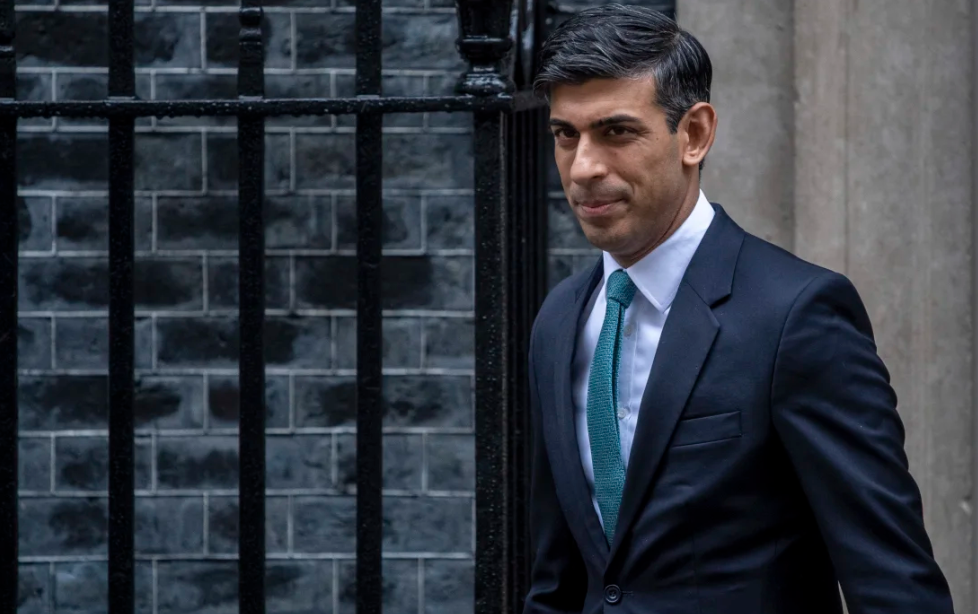British prime minister:
“Rishi Sunak, the current British Prime Minister, faces a pressing question with just under a month to answer: why should his Conservative Party be granted another five years in power during the next election?
The annual conference of the governing Conservative Party is set to unfold in Manchester, England, next month. This gathering is widely perceived as the last of its kind before the upcoming UK general election. While Sunak could technically delay calling for a vote until after next year’s conference, it’s a move that few find favorable, and most anticipate the election to occur before the following autumn.
The upcoming weeks, particularly Sunak’s performance at the party conference, are of paramount importance. They represent his final opportunity to shape the political agenda before the election and to invigorate party members for a vigorous campaign.
Currently, the mood within the Conservative Members of Parliament is notably subdued. They lag behind the opposition Labour Party in the polls, and there’s a pervasive sense of a party nearing the end of its tenure in office.

On a national scale, whether accurate or not, the prevailing sentiment often leans towards the belief that very little is going smoothly in the United Kingdom at this juncture. Safety concerns regarding deteriorating concrete in school walls and ceilings, which resulted in some students being instructed to stay home instead of returning to school after the summer break, exemplify the broader challenges faced by the country.”
Another senior backbench member concurs that portraying Labour as a threat and positioning traditional Conservatism as the sole solution to the UK’s long-standing challenges is the key to electoral victory.
“They still criticize our austerity measures from 2010. What they label as austerity, we regard as responsible fiscal management. Unfortunately, the COVID-19 pandemic has once again burdened us with substantial national debt. Opting for Labour would jeopardize any hopes of fiscal responsibility,” asserts the backbench member.
However, some within the party argue that merely engaging in confrontations to define Labour or depicting the opposition as perilous is insufficient, urging the Conservatives to completely overhaul their ideological framework.
“We ought to undergo a comprehensive policy overhaul,” suggests another experienced MP on the right wing of the party. “We should prioritize housing for young people, even if it necessitates government land acquisition. Lowering tuition fees and providing grants for science disciplines should be on the agenda. Additionally, we should meet the demands of healthcare professionals and compete with the private sector.”
When questioned by CNN about the resemblance of some of these ideas to traditional socialist policies, the MP responded, “Well, the first one to reach the finish line wins. That’s where we stand.”
Nonetheless, there are those who believe that, barring an economic miracle, the outcome of the next election is virtually predetermined. “The only message is that you can’t trust Labour or Starmer,” a senior Conservative figure stated, albeit without much optimism.

[CNN.com]
Even among the few optimists who believe that Labour can still be effectively challenged, there are counterarguments that cannot be dismissed. Nevertheless, the prevailing sense of disillusionment regarding the country’s current state constitutes the most compelling case for a change in government, as noted by Rob Ford, a professor of politics at the University of Manchester.
“Presiding over crumbling schools, pollution in rivers, and high-profile prisoners going free makes it difficult to convincingly claim that the risks lie with the other side,” remarked Ford.
Rishi Sunak assumed leadership during one of the most challenging periods in history for a new Prime Minister. Supporters highlight significant achievements in stabilizing critical aspects of British politics. Nevertheless, it may be the case that the uphill battle he faces is insurmountable. For a Conservative Party that has held power since 2010, the public’s sentiment may lean toward giving someone else a chance, rendering the seemingly inevitable shift difficult for even the most talented politician to counter.
As the UK’s next general election approaches, Rishi Sunak must justify why the Conservative Party deserves another five years in power. With a subdued party mood and concerns over national issues, Sunak’s performance at the upcoming party conference is pivotal.
Within the party, there’s a debate: stick to traditional Conservative values or undertake a comprehensive policy overhaul with potentially socialist-inspired initiatives. However, some see the election’s outcome as predetermined unless an economic miracle occurs. A sense of disillusionment is growing, making the case for change stronger.(USnewsSphere)
Sunak, despite stabilizing key aspects of British politics, faces an uphill battle. The public sentiment leans toward giving someone else a chance after over a decade of Conservative rule, potentially making the election’s outcome a tough challenge to influence, even for a skilled politician like Sunak.





